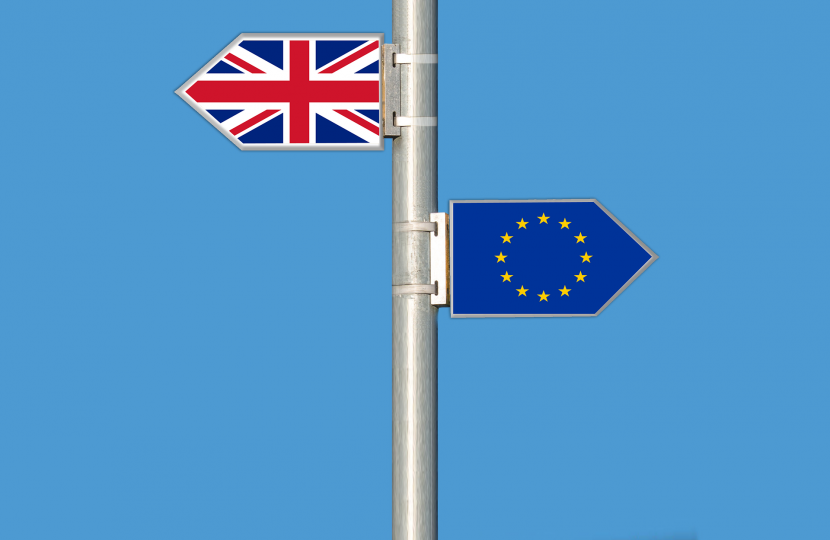
I have had a lot of emails about possible changes to the EU Withdrawal Agreement and I thought I should explain my and the Government’s position as clearly as I can.
The UK and the EU are still trying to conclude a Free Trade Agreement (FTA), as both parties committed to doing when the Brexit deal was struck late last year. No FTA has yet been agreed, and of course both sides are blaming the other for this. (Naturally, I share the Government’s view: by insisting on a ‘level playing field’ on trade - i.e. that we follow their rules - and on our compliance with their state aid regime, the EU is failing to treat the UK as an independent country. Others will blame the Government and argue we should accept the EU keeping us in their regulatory orbit, and telling us whether and how we can support our own domestic economy.)
Whoever is to blame, if we can’t get an FTA, we still need to end the transition period in December. We also need to maintain smooth trading arrangements across the border in Ireland, as well as within the UK. The UK Internal Market Bill contains some clauses which, in the event of no FTA, will enable us to design our own system for trade and customs checks - including disapplying the requirement, set out in the Withdrawal Agreement, for customs checks between Great Britain and Northern Ireland. This was always the most unpalatable part of the Brexit deal the Prime Minister struck last year, and the one advantage of not getting an FTA (which I and everyone sincerely wants as the best possible outcome) is that we can do without this requirement if we decide it is unnecessary or unhelpful.
Brandon Lewis, the Northern Ireland Secretary, was perhaps too blunt when he said that this disapplication of part of the WA would be ‘breaking international law.’ In fact such a breach is permitted in the WA itself, which contains ‘safeguard’ clauses allowing either party to make unilateral measures to protect their society or economy. The UK and the EU understood in negotiating the Brexit deal that it could be necessary for one side to flex their application of the deal. Of course, the EU is angry that we are threatening to do so. But it is quite within a sovereign nation’s right to change its policy when circumstances change, and to amend or withdraw from previous agreements unilaterally. The EU itself does so frequently.
The sovereignty of the UK Parliament was confirmed in the Gina Miller case in the Supreme Court last year, and the supremacy of domestic law over international law was asserted in the EU Withdrawal Act which brought the WA into effect. For both these reasons, the UK Internal Market Bill is entirely legal and proper.
I hope this explains why the Bill has caused such a stir. A lot of people are choosing to see malignancies where they don’t, in my view, exist. It’s a shame, because the Bill also sets out some really exciting plans to improve trade in the UK and devolve more power to Scotland, Wales and Northern Ireland. If the EU would simply agree to negotiate in good faith with the UK as an independent ally with mutual interests, rather than as a delinquent fugitive who must be punished for escaping from them in order to discourage others, we could avoid all this fuss, sign an FTA and move on.





